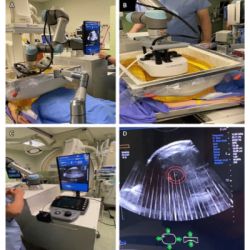A study suggests that diagnostic tests are frequently repeated among Medicare beneficiaries, according to a report published Online First by Archives of Internal Medicine.
Repeat examinations are a “major determinant” of a physician’s capacity to care for new patients and of the ability to contain health care costs, write the authors in the study background.
H. Gilbert Welch of Dartmouth College and colleagues examined patterns of repeat testing in a longitudinal study of a 5 percent random sample of Medicare beneficiaries. They also studied the relationship between the proportion of the population tested and the proportion of tests repeated among those tested using the 50 largest metropolitan statistical areas as the unit of analysis.
“We examined repetitive testing for six commonly performed diagnostic tests in which repeat testing is not routinely anticipated. Although we expected a certain fraction of examinations to be repeated, we were struck by the magnitude of that fraction: one-third to one-half of these tests are repeated within a three-year period. This finding raises the question whether some physicians are routinely repeating diagnostic tests,” the authors note.
The study results indicate second tests taking place within three years among Medicare beneficiaries as follows
- Echocardiography 55%
- Imaging Stress Tests 44%
- Pulmonary Function Tests 49%
- Chest Computed Tomography 46%
- Cystoscopies 41%
- Upper Endoscopies 35%
The proportion of the population tested and the proportion of tests repeated also varied across metropolitan statistical areas.
The authors conclude, “Diagnostic tests are frequently repeated among Medicare beneficiaries. This has important implications not only for the capacity to serve new patients and the ability to contain costs but also for the health of the population. Although the tests themselves pose little risk, repeat testing is a major risk factor for incidental detection and overdiagnosis. Our findings should foster further research in this unstudied area.”
In an accompanying commentary, Jerome P. Kassirer of Tufts University School of Medicine and Arnold Milstein of Stanford University School of Medicine write, “After decades of attention to unsustainable growth in health spending and its degradation of worker wages, employer economic vitality, state educational funding and fiscal integrity, it is discouraging to contemplate the fresh evidence by Welch et al. of our failure to curb waste of health care resources.”
“To avoid reading an almost identical article about unwarranted geographic variations in these pages 10 years from now, physicians will need to support expansion of peer-designed active electronic clinical guidance systems and faster retirement of fee-for-service incentives,” they continue.
“No matter what future payment system is implemented, some intercession in clinical decision making will be required to protect patients from too many tests and from too few tests. We have not come close to getting it right,” they conclude.
(Arch Intern Med. Published online November 19, 2012. doi:10.1001/2013.jamainternmed.727. Available pre-embargo to the media at http://media.jamanetwork.com.)






















